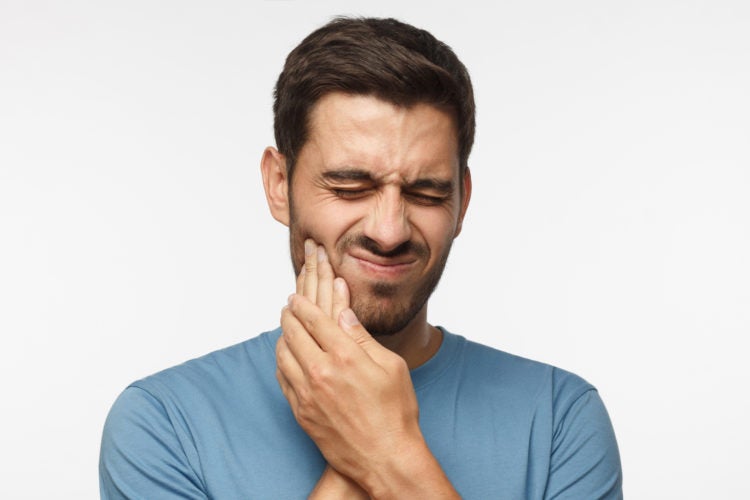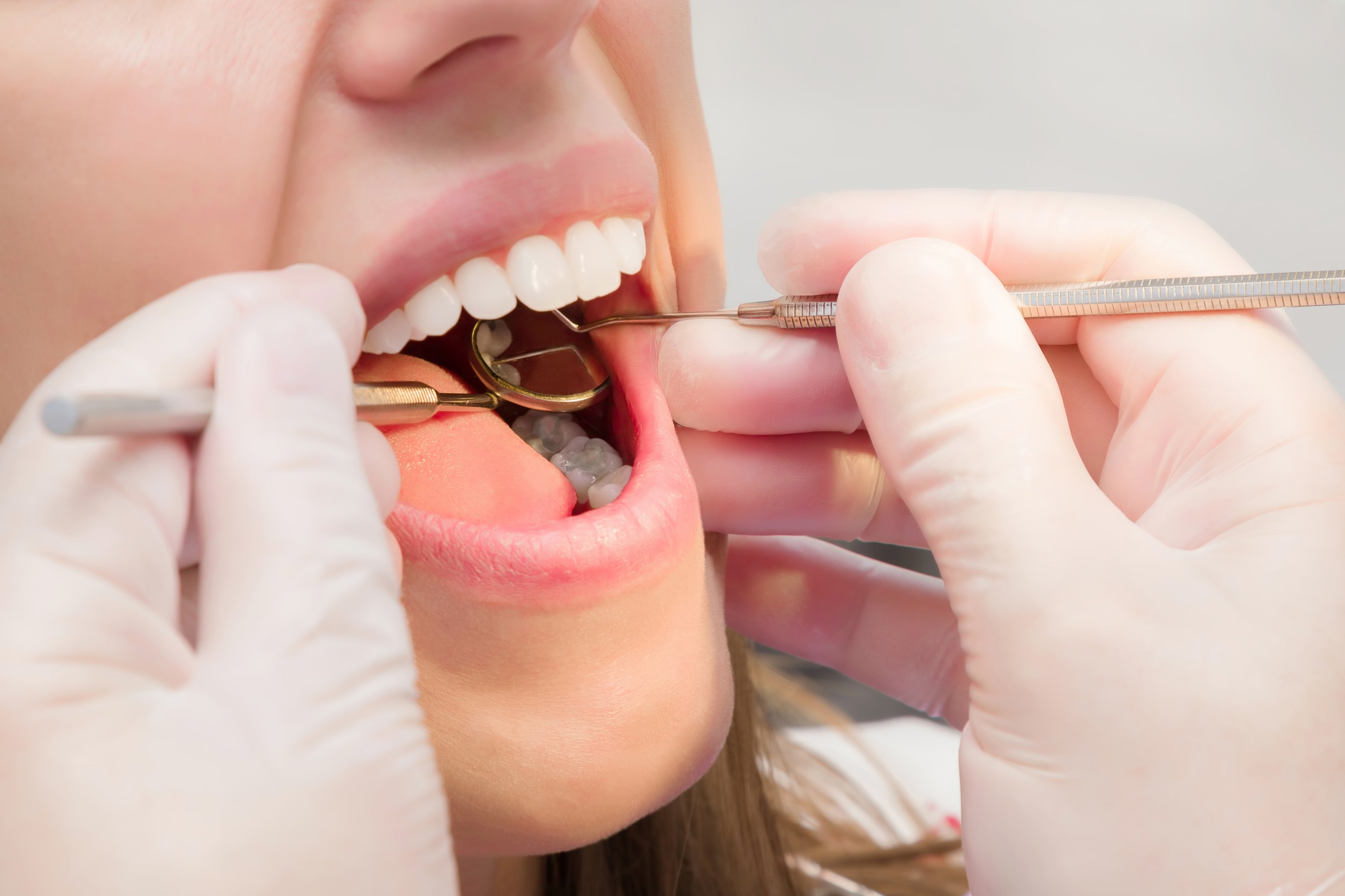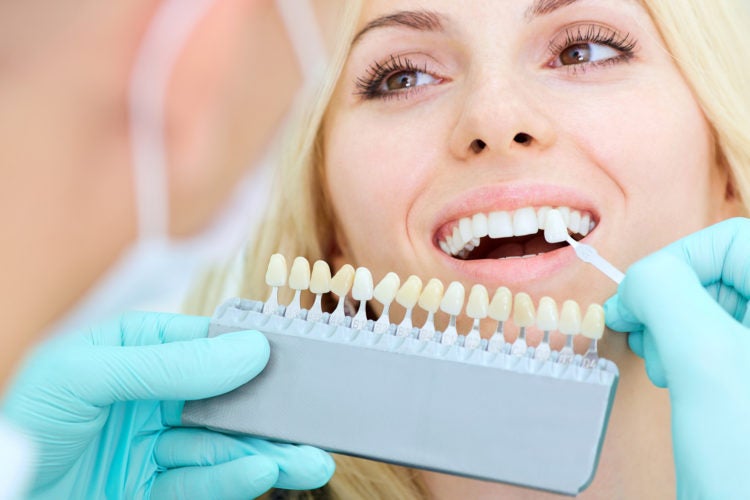-
What Constitutes a Dental Emergency?

Accidents involving your mouth can occur at any time of day or night. Some oral injuries need immediate treatment, while others are safe to delay until regular business hours. How can you tell a standard dental problem from a truly urgent situation? Answer the following questions to help determine what constitutes a dental emergency.
If you need immediate attention after hours, please call our emergency phone number at (917) 566-9419, and our on-call doctor will help you. If you are unable to reach us during a dental emergency, dial 911.
Are you in severe pain?
If you bite down on something hard or get hit in the face while playing sports, you could chip a tooth and expose a nerve, resulting in severe pain. A toothache from an abscess or serious infection can also be unbearable—and potentially life-threatening.
If you’re in excruciating pain, you shouldn’t wait to get treatment. Call our emergency dentist in NYC as soon as possible!
Is a tooth loose or knocked out?
Adults are done losing their baby teeth. If you feel a permanent tooth wiggling around in your mouth, even if you feel no pain, call an emergency dentist right away.
A knocked out tooth is even more serious. Call your dentist, and while you wait to be seen, handle the tooth as little as possible. If you can, insert the tooth back in its socket and place moistened gauze over it so you can bite down gently and hold it in place. NOTE: Don’t put a baby tooth back in its socket because it could fuse there or damage the permanent tooth beneath it.
If you can’t put a knocked out tooth back in its place, rinse it with saline solution (contact solution) or milk. Then, place the tooth in a container of milk or saliva (preferably from the patient). NOTE: Don’t rinse or soak a knocked-out tooth in water. Also, don’t scrub the tooth.
Are you bleeding profusely?
It’s not a dental emergency if your gums bleed while flossing, but if you have a traumatic injury and start bleeding from the mouth, this is a sign that something is wrong. Call an emergency dentist in NYC to have the problem looked at right away!
What is NOT a dental emergency?
Sometimes, oral trauma occurs, but it’s safe to delay treatment for a few days. Here are some examples of what does not constitute a dental emergency:
- A chipped or cracked tooth with no pain and no sharp fragments.
- Minor toothache with no other symptoms, such as facial swelling, high fever, or bumps on the gums.
- Lost crown or filling. (You can temporarily fill a cavity with sugar-free gum, or put a crown back in place for the time being with denture adhesive or dental cement.)
If you answered “yes” to any of the questions above, you may be having a dental emergency. Call Park 56 Dental’s after-hours dentist for help—(917) 566-9419.
-
Top Food and Drinks that Cause Tooth Discoloration

Everyone wants their pearly whites to be—well, pearly white. You may be good about brushing and flossing every day, but the culprits of your stained teeth could be found in your diet. Here are the top food and drinks that cause tooth discoloration, and how to restore the sparkle to your smile.
What Causes Tooth Discoloration?
Tea
While it’s full of antioxidants that are good for your body, tea is infamous for staining teeth. All types—including herbal, white, green, and black—can cause stains. The darker the brew, the worse the stains.
Wine
It’s no surprise that if a drink can stain a tablecloth, it can also stain your teeth. The dark color of red wine is known for causing tooth discoloration, but white wine, which contains even more acid than red, is an equally guilty culprit.
Berries and fruits
Vibrant blueberries, cherries, blackberries, and pomegranates are packed with antioxidants, but their bright colors and high acid content can stain teeth—so can juices and pies made from these berries and fruits.
Dark sauces
Soy sauce, tomato sauce, and curry may be tasty, but these deeply colored, often highly acidic sauces can cause tooth stains. Light-colored, cream-based sauces are less serious offenders.
Sports drinks & carbonated sodas
They may be packed with electrolytes to replenish what you lose in your sweat, but artificially colored, acidic sports drinks can erode enamel. Carbonated beverages are even worse because they contain tooth-staining chemical additives, in addition to artificial dyes and acids.
Candy
If your favorite candy stains your tongue, you can bet it also stains your teeth. Sour candy is the worst because it contains citric or tartaric acid, which eats away enamel.
How to Prevent Tooth Discoloration
Cut back
Strive to decrease or eliminate the unhealthy tooth-staining culprits listed here from your diet, especially soda and candy. Then, limit your intake of the rest, mixing other healthy, non-staining foods into your diet as well.
Drink through a straw
Sip on stain-causing drinks through a straw to limit how much they come in contact with your teeth.
Swallow quickly
Enjoy the taste of your food or drink, but don’t swirl it around in your mouth longer than necessary. Swallow soon to prevent prolonged exposure to tooth-staining colors, chemicals, and acids.
Rinse, chew gum, or brush your teeth
Swish your mouth out with water shortly after eating or drinking something known for staining teeth. Chewing sugarless gum is also effective. If possible, brush your teeth, but wait at least 30 minutes after eating acidic food, or you could damage your enamel.
Schedule a Dental Cleaning
The good news is that most surface stains can be removed with a professional dental cleaning. That means the key to preventing tooth discoloration is as simple as visiting your dentist every six months! Park 56 Dental will leave your teeth looking shiny, healthy, and beautiful.
Let our NYC dentist take care of your smile! To schedule an appointment, please call us at (212) 826-2322 today.
-
The Benefits of Porcelain Veneers

Have you ever felt self-conscious about smiling with your slightly chipped, misshapen, or discolored front teeth? If so, it’s time to consider porcelain veneers. These cosmetic corrections hide your teeth’s imperfections behind thin, natural-looking shells that blend in perfectly with the rest of your smile.
Not sure if restorative dentistry is right for you? Consider the benefits of porcelain veneers to help you make the right decision for your oral health.
Correct a Variety of Cosmetic Flaws
Veneers are incredibly versatile. You can install one of a slightly different size or shape than your natural tooth to hide small gaps or create the appearance of a straighter smile. The coating can mask tooth discoloration and cosmetic chips or level out the length of mismatched front teeth.
As long as the underlying tooth is healthy, you can correct its appearance in many ways just by installing a veneer. Don’t worry—if the tooth is not healthy, you still have options, such as installing a dental crown or implant instead. Either way, you can find a solution to fix your smile with restorative dentistry!
Keep More of Your Natural Tooth
When a dentist installs a crown, most of the natural tooth must be removed to make room for it. With a veneer, only a small amount of the enamel must be shaved off the front to ensure the coating sits flush with the rest of your teeth. This sounds like an uncomfortable procedure, but it’s noninvasive and may not even require anesthesia!
The process takes only two visits to complete. At your first appointment, the dentist removes a portion of your enamel and takes impressions of your teeth to have custom porcelain veneers made. Temporary veneers are installed to protect your teeth until your next appointment, where they are replaced with permanent veneers that look and feel completely natural.
Smile Confidently for Years to Come
Having dental veneers requires no additional maintenance, but you should continue to take good care of your smile by brushing, flossing, and visiting the dentist for regular checkups. Whether you have one veneer or several, you can expect them to last about 10 years before needing to be replaced.
Resist Cavities and Staining
Veneers protect against decay, making cavities less likely to occur in the teeth they cover. Simply continue to take care of your smile like you normally do, and you shouldn’t have any trouble! Veneers are also non-porous, helping them retain their original color. However, it may be best to avoid food and drinks that stain teeth—such as coffee, tea, wine, and tobacco—to maintain the beauty of your smile.
At Park 56 Dental, our NYC dentists are highly skilled and have years of experience installing dental veneers. If you are displeased with your smile for any reason, feel free to contact us at (212) 826-2322 for a consultation. We’ll discuss the possibility of restoring your smile with porcelain veneers and educate you on any other viable options that may suit your needs better.
-
Everything You Need to Know About Dental Implants

If you have missing, infected, or otherwise damaged teeth, it’s important to have them restored as soon as possible. Otherwise, your speech could be affected, or chewing food could destabilize your bite and cause pain.
Dental implants allow you to confidently eat, smile, talk, laugh and enjoy all your other daily activities without feeling self-conscious about your teeth. If you have ever had a cavity filled and a crown put in, you’re familiar with the visible portion of a dental implant. Of course, if the tooth is missing or the root is severely damaged, you must replace that as well. This is where dental implants are helpful.
If you’re interested in this type of restorative dentistry, read on to learn everything you need to know about dental implants.
What is a Dental Implant?
Dental implants have three components. The first is an artificial tooth root made of titanium, which is similar in size and shape to a screw. When your dentist implants this in your mouth, it bonds with your jawbone, a process that takes about six months. This creates a stable support for one or more artificial teeth.
A connector, known as an abutment, goes in next. Your dentist installs this on top of the artificial root once it has fully bonded with your jawbone. Then, after your gums heal around the abutment, the crown is cemented on top.
The crown component of a dental implant is custom-made out of porcelain to match the color and shape of your original tooth. It looks, feels, and functions exactly the way you would expect, creating a totally natural solution that’s indiscernible from the rest of your teeth. When you show off your healthy, beautiful mouth, no one will ever suspect you have a replacement tooth!
Facts About Dental Implants
- Archeological findings have discovered that people more than 2,000 years ago replaced missing teeth with carved seashells or stones.
- The American Academy of Implant Dentistry was formed in 1951, making it the first professional organization dedicated to advancing dental implant technology.
- In 1952, it was discovered that titanium fuses with bone, making it the go-to metal for dental implants.
- Modern dental implants have been around for over 30 years.
- Dental implants are strong, permanent devices. In fact, they are more durable than your natural teeth!
- Unlike some other restorative dental procedures, implants preserve your natural bone, stimulating more bone growth and a healthier mouth.
- 100,000 to 300,000 new dental implants are placed in the US each year to restore the smiles of young adults missing one permanent tooth as well as older adults needing to replace an entire arch of missing or damaged teeth.
The NYC dentists at Park 56 Dental are highly skilled and experienced with installing dental implants. If you have a gap in your smile or are dissatisfied with your teeth for another reason, call us at (212) 826-2322 to discuss the possibility of restoring your smile with dental implants.
RECENT POSTS
categories
- Uncategorized
- Cosmetic Dentistry
- Veneers
- Healthier Teeth
- Teeth Whitening
- Dental Health
- Video
- Dental Emergencies
- Invisalign
- Dental Implants
- Root Canal
- Sedation Dentistry
- Infographic
- Dental Crowns and Bridges
- Dental Anxiety
- Gum Disease
- COVID-19
- Bad Breath
- New York Dentist
- Cut out sugar
- General Dentistry
- Oral Health
- Oral Cancer
- Dry Mouth
- Gum Health
- Toothache
- Dental Sealants
- Cavities
